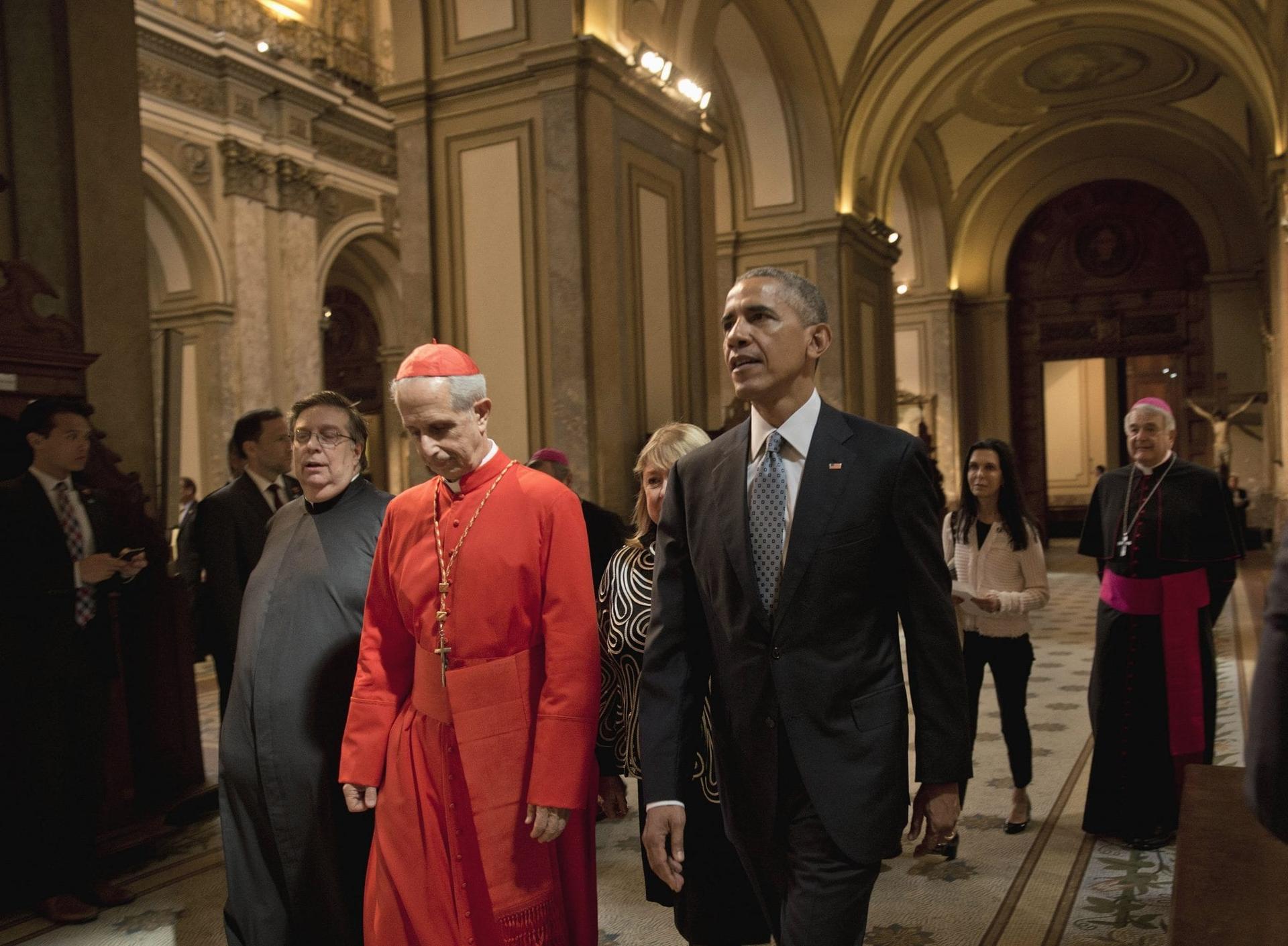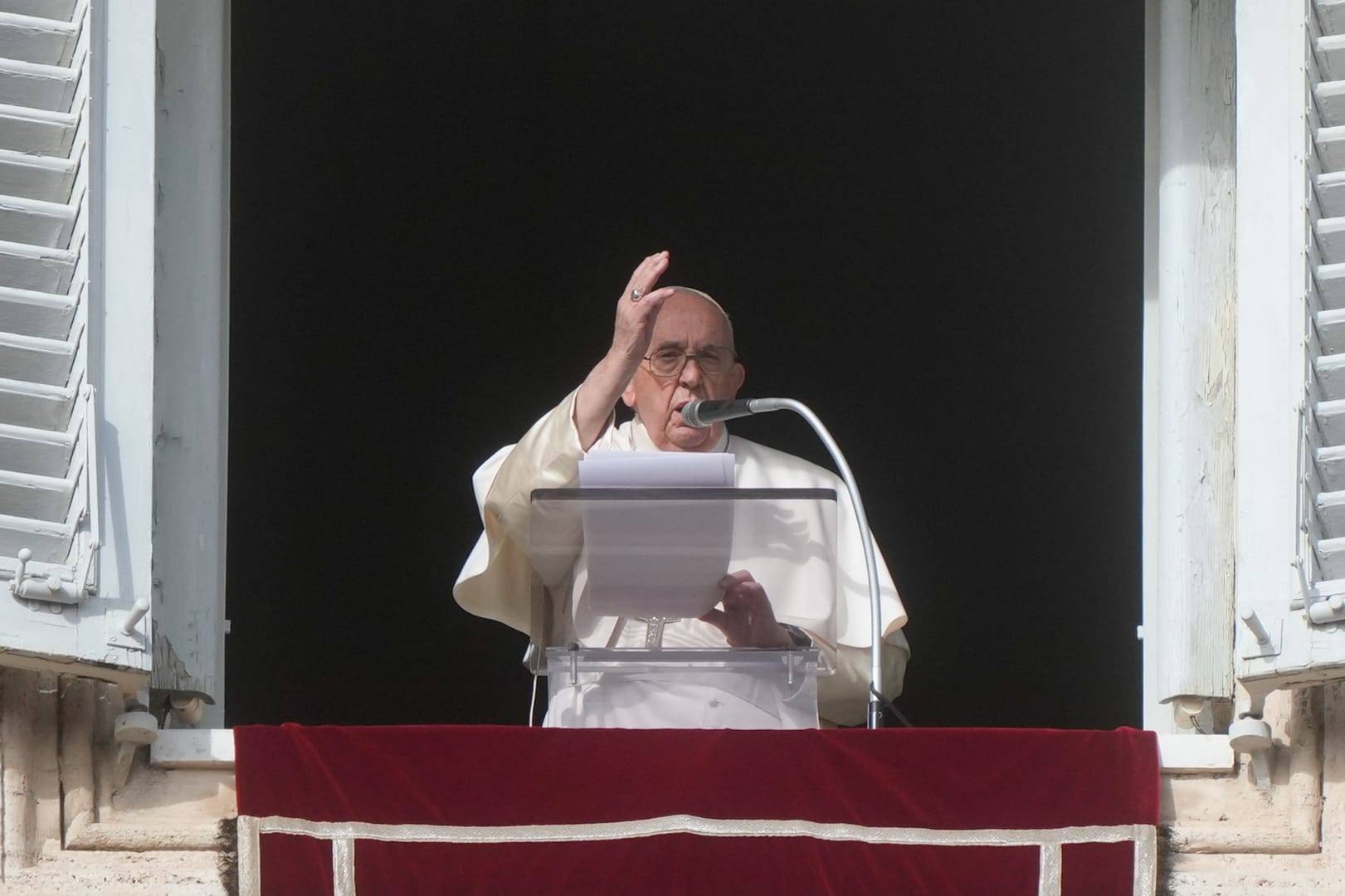BUENOS AIRES, Argentina— A key Pope Francis ally in Argentina has delivered a thinly disguised punch against the former socialist government of Cristina Fernandez de Kirchner, making a sarcastic public reference to the latest proof of corruption involving many of her closest advisers while she herself is under investigation.
“I think of the bags … They ask why the people don’t understand them and don’t accompany them in their proposals, [but it’s] probably because they installed themselves in the reign of ideas and rhetoric,” Cardinal Mario Poli of Buenos Aires is quoted as saying by local media.
Poli, a close friend of Pope Francis from his time in Argentina, was personally selected by the pontiff as his successor in Buenos Aires in 2013. Poli was actually the first bishop named by Francis, just 15 days after his election.
The reference to “bags” was immediately understood by Argentinians as alluding to a scandal involving Kirchner’s former public works secretary, who was arrested in June as he was trying to sneak bags with almost nine million dollars into a convent in the outskirts of Buenos Aires.
The investigation of Lopez continues, with him recently declaring that the money came from politics, though he hasn’t offered further details.
Four women who wear habits and are often described as “nuns,” but who are in reality consecrated lay women, are also under investigation for their roles in the affair. However, Lopez said on Thursday that they’re innocent.
The second part of Poli’s statement comes as Kirchner sees her popularity plummeting, as a result of growing allegations of corruption against her and her former aides.
Poli’s words came on Monday, when he was participating in an encounter called “Rethinking Politics,” organized by Argentina’s bishops’ conference and hosted in one of the rooms of the local congress building in Buenos Aires.
In his address, with which he presented the bishops’ latest social document on the 200th anniversary of Argentina’s independence, Poli also spoke about the growth of drug dealing, saying that it’s an issue that “moves and worries” the local hierarchy.
“All of us who have some leadership responsibility in Argentina must apologize to the people for allowing things to reach this point,” Poli said.
From early on in his pontificate, Pope Francis’ countrymen in Argentina have tried to pin him down, not so much as a liberal or a conservative, but as the leader of the opposition regardless of the ruling party.
During the first two years, many accused Francis of changing his attitude towards Kirchner, welcoming her in Rome several times, when during his years as archbishop of Buenos Aires, Cardinal Jorge Bergoglio and Kirchner never saw each other.
Others, however, said he was still the leader of the opposition, and that he’d received her so often (seven times) because he feared she wouldn’t be able to finish her term, something which happened in Argentina many times in the 1970s leading to a bloody military coup known as “the dirty war.”
In recent months, he’s also been labeled as the leader of the opposition to the government of center-right Mauricio Macri, former mayor of Buenos Aires, with whom Bergoglio met several times during the years they were in positions of leadership in the same city.
This perception is based on the leak of partial private emails from the pope, the opinion of a handful of “friends” of Bergoglio who claim to be papal spokesmen (to the point that Francis had to go on record to say that he has no other spokesman than that of the Holy See) and in disregard of the pope’s own words, who’s said time and time again he was nothing against Macri.
The perception of tension is partially built on the fact that Argentina’s bishops’ conference is constantly talking about three key social issues, which are often pinned to Macri, who took office last December: chronic poverty and high unemployment levels, drug trafficking, and corruption, none of which is a newly developed issue.
As a matter of fact, all these were addressed often by the bishops’ conference when Bergoglio lead the body for over a decade.
Poli attempted to summarize Francis’ message to his native country on Sunday, during a Mass for St. Cayetano, the patron of work and bread, of whom Francis, and Argentinians in general, is a big devotee.
“The ideal of living in Argentina as a great family with fraternity, solidarity and the common good is far from being reached,” Poli told the thousands who had gathered on Sunday.
“The Independence Act will become a reality when the most outcast family has a decent house to call home, where education and health are not lacking, and the parents have a dignified and honorable job,” he added.

















